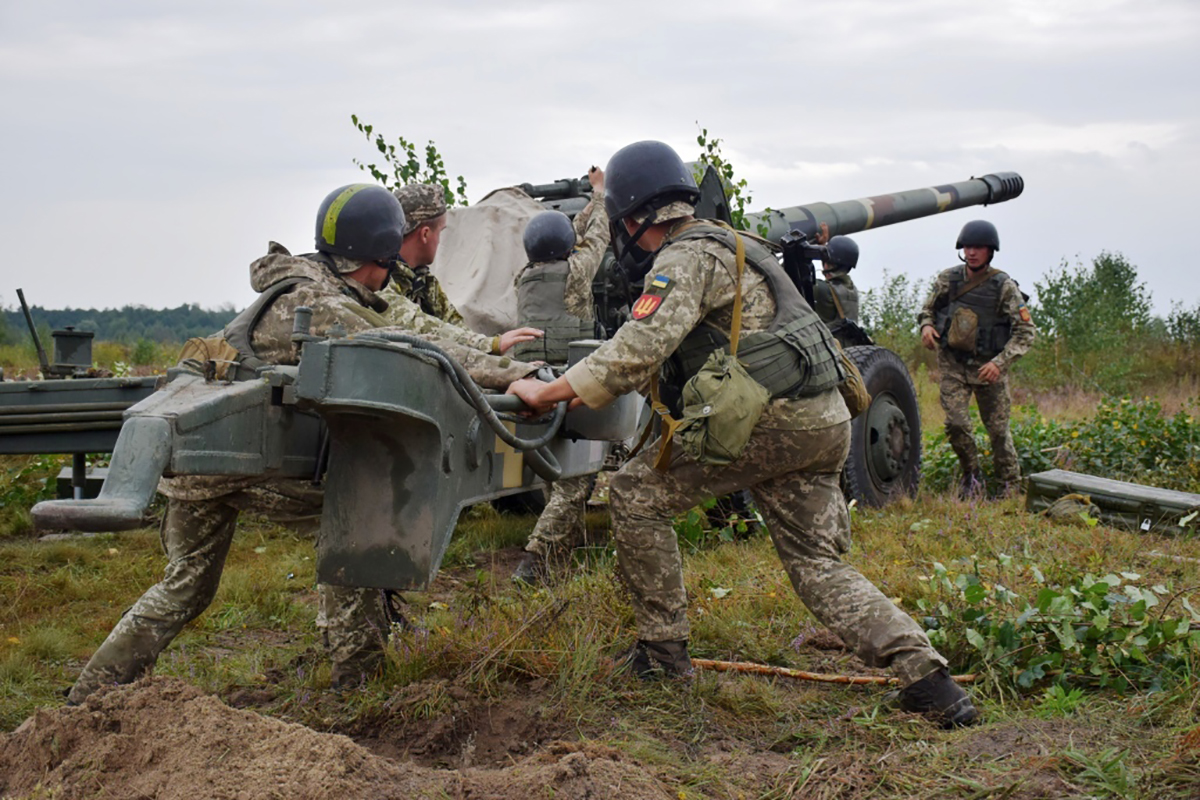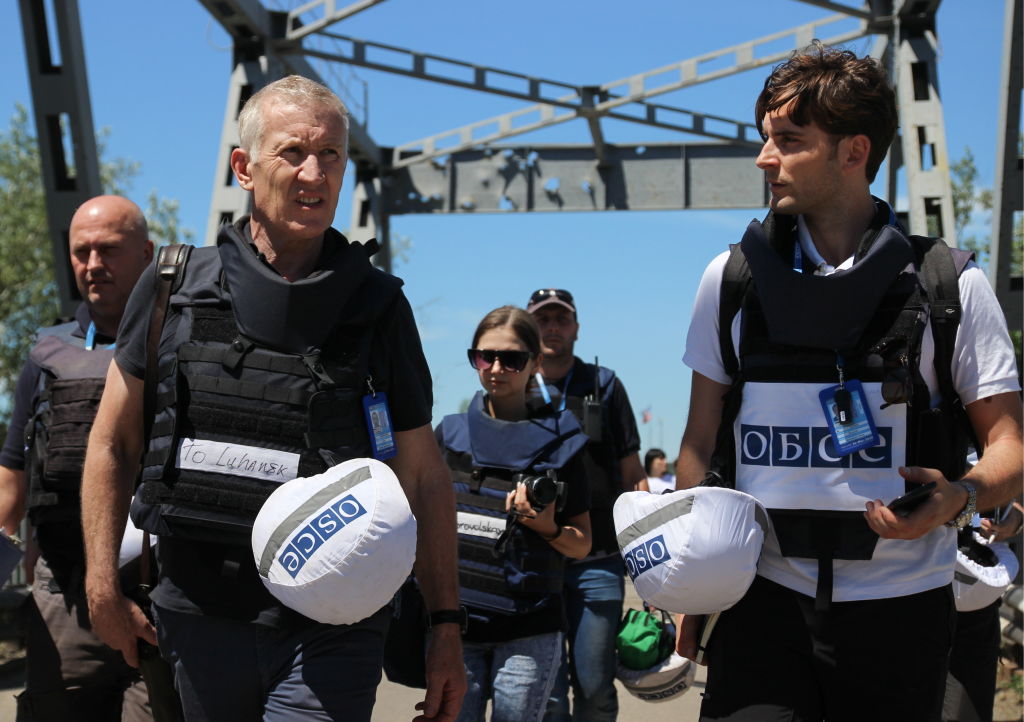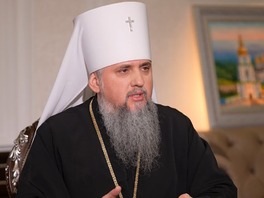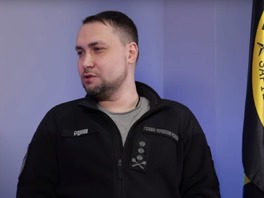On Wednesday, June 26, at 12:00 in a zone of military operations on Donbass around the Stanytsia Luhanska the interposition of forces of AFU and the Russian occupation troops took place. "Everything happened under the supervision of the OSCE representatives, who were on both sides. At the signal of signal rockets from our side and from fighters our military left positions defined by OSCE,", the headquarters of OSCE reported. "Apostrophe" learned, what does this interposition of forces mean, considering the fact that since 2016 the militants and the AFU have retreated only twice.
New old arrangements
The interposition of forces near Stanytsia Luhanska was planned to be held several times in 2018, and in 2017, but this could not be done. The thing is that the main condition for an organized retreat is a complete ceasefire for seven days. But the fighters could not keep the powder dry for a week in this area (according to the terrorists, APU could not stop shooting), respectively, nor the ATO forces or gangs of the Russian Federation did not move from their positions.
Why seven days of silence? This is written in the "Framework decision of the Trilateral contact group on the interposition of forces and means", which was signed in Minsk in September 2016. This document provides for the interposition of forces and means in three sectors of the front: in the area of the town of Zolote of Luhansk region, the village Petrovske of Donetsk region and Stanytsia Luhanska In Zolote and Petrovske forces were interpositioned in October of 2016, that is, almost immediately after the signing of the "Framework decision" in Minsk. But the participants of the conflict could not move away from Stanytsia Luhanska in over two years.
Why Stanytsia Luhanska? First, there is the only one working entry-exit checkpoint (EEC) in the entire Luhansk region. There are, of course, EEC "Zolote", which was opened in March 2019, but the militants do not pass civilians through it. In turn, the EEC "Stanytsia Luhanska" is pedestrian checkpoint, and it is in an extremely deplorable condition: to get from the territory of the LPR to the territory of free Ukraine it is necessary to cross the bridge over the river Seversky Donets, only this bridge is in a dilapidated state, respectively, the transition turns into a lottery, where human health is at stake.
To restore this bridge, by and large, is not particularly profitable for Ukraine, because in this case, the militants will be able to carry out their military equipment on it, in the event of an aggravation of the situation in the Luhansk sector. Apparently, for the same reason, the occupants are not in a hurry to pass people through EEC "Zolote", which is completely ready for operation – they want Ukraine to find itself in a standstill and restore the bridge on the only EEC operating in the region.
"In this area the enemy occupies a dominant height. From it is looking at our forward positions and most of the Stanytsia Luhanska," the expert of the Center of Military-political researches Konstiantyn Mashovets explained to "Apostrophe".
"Moreover, EEC "Stanytsia Luhanska" is close to the border. This is a security issue, because in the case of an escalation of Russian aggression, our units in the area of Stanytsia Luhanska would be in another mousetrap. Therefore, from our side, the issue did not move – we demanded greater guarantees," the Deputy Director of the Dnipro Branch of the National Institute for Strategic Studies Oleksii Izhak added to "Apostrophe"
The threat of disruption of the interposition of forces appeared this time, too. First, the representative of Ukraine in the TCG Leonid Kuchma went to Minsk on June, 5, and based on the results of negotiations with representatives of the occupiers he made a loud statement: the parties still came to an agreement on mousetrap and were ready to start the interposition of forces on June, 10. But then on June, 7 fighters again fired at positions of AFU, respectively, the mode of seven-day silence was not sustained, so, it was necessary to transfer cultivation of forces once again. Finally, by June 26, the OSCE recorded a stable truce in this sector of the front, and the Ukrainian military began to leave their positions. By the way, is not yet clear, if the fighters did the same on their side, because the headquarters of the JFO noted that it did not have that information.
"It is difficult to say how real this interposition is from the other side. It all depends on the methods of control by the OSCE. For example, local residents were told that the fighters simply imitated the withdrawal: the car with the soldiers came, dressed accordingly, they unloaded some boxes, then turned on the camera and loaded the boxes and left, allegedly they withdrew," Mashovets said.
On June 26, the OSCE recorded a stable truce in this sector of the front
What it means
After the beginning of the interposition of forces in Stanytsia Luhanska, some politicians and users in social networks began to actively criticize the President and the military, they wonder why the Ukrainian army retreats from its own land. But, as it was stated above, interposition of forces in Stanytsia Luhanska is the result of arrangements of Petro Poroshenko's administration. On the other hand, why during two and a half years fighters didn't move anywhere from the positions in Stanytsia Luhanska, and on June 26 suddenly started departing?
"A consensus has been reached between Paris, Rome, Berlin and Russia that it is necessary to lift sanctions against Russia and return it fully to European life. The part of the conditions for Russia is reconciliation in the Donbas in exchange for the fact that Crimea will be de facto forgotten. De jure, of course there will be some statements, but they will have no sense," the military expert Oleksii Arestovych said to “Apostrophe”.
EEC in Stanytsia Luhanska was one of the most problematic areas of the front line for the civilian population, respectively, where else the willingness to reconcile should be demonstrated.
"During all this time there was quite a powerful humanitarian pressure from Europe. Europeans constantly come to this EEC and are horrified what conditions people suffer and how they have to cross this bridge, climb wooden stairs, so it is necessary to do something," Oleksii Izhak adds.
But why did the Ukrainian party agree to the interposition of forces? Did the security factors that for two and a half years did not allow to come to an agreement on this site, suddenly disappear?
"Obviously, Russia has made it clear that there will be no military advance right now, and it is more interested in LPR’s direct negotiations with Kyiv. And negotiations, including on the interposition of forces and means, is another small step towards the legalization of the LPR. From my point of view, the Russian Federation considered that it is preferable for the LPR to have a direct dialogue with Ukraine than to leave the option of attack and further military expansion," Izhak said.
"There was a moment when everybody needed peace in the Donbass, - Oleksii Arestovych added. – Well, Zelensky needed peace in Donbass, as the war is not his topic, he wants to jump off it. His tasks include internal reforms, the victory over corruption, and the war is hard, many mistakes can be made, and it needs to be finished faster. And the DPR and the LPR announced that they give us four prisoners, so the process started."
But, in addition to demonstrating "peacefulness" for Europe, in the Ukrainian issue Russia needs to come to a compromise with another strong player – the United States. And, it seems, on this front Putin too can reach his goals.
"On June 26, the interposition of the parties began, and on June 27 it was confirmed that it was successful. In the morning of June 27, Russia announced that it had finally withdrew its military experts from Venezuela. And on the same day, Donald Trump expressed confidence that the talks with Putin at the G-20 summit will be fruitful. That is, the Russian Federation at the same time demonstrates its readiness for dialogue on Venezuela, Ukraine and Moldova, - the analyst of the Ukrainian Institute of the Future Igar Tyshkevych said to "Apostrophe". –The RF leaves out Iran, North Korea, and North Africa, hoping that if there would be a big deal, at least, a mini-agreement will take place. If progress on these specific points of tension, including Ukraine, is in the interests of Trump, then we can offer, perhaps, not the most suitable option for us to continue."
Peace on Russian terms is not the most profitable option for Ukraine, of course: with the autonomy of Donbass, Russian as the second state language, direct negotiations with the puppets of the LPR, the DPR and other "bonuses" that Russia has been trying to impose for many years.
"Tthe way we want, on our terms - this format has not found support over the past two years," Tyshkevych said.
In this case, if peace will be based on the concessions of Ukraine, it is unclear whether such a scenario will be supported by the society, since during 5 years the concessions to the Russian Federation was out of the question.
"The society mainly supports Zelensky, - Arestovych says. - Ukraine becomes itself what it was before: yes, it is Ukrainian-speaking, yes, it does not really want to be with Russia, but it does not want to quarrel with it. I call it finlandization. That is what happened to Finland after the Second world war, when it became a buffer state between the USSR and Europe. Finlandization of Ukraine is the number one task for Russia. But they will not be satisfied with this and will try to assimilate Ukraine within 10-15 years."
To prevent this from happening, it would be better to compensate for the inconvenient peace with weighty guarantees from the West.
"If Zelensky was demanding, he would have knocked out from the West now, firstly, the money for the restoration of Donbass, so that we do not pay a penny, secondly, the presence of international missions, thirdly, the status of NATO's main ally outside NATO and the complete removal of restrictions on the supply of lethal weapons, so that it is completely possible to rearm our army. But I'm afraid that the President will not get it," Oleksii Arestovych summed up.







